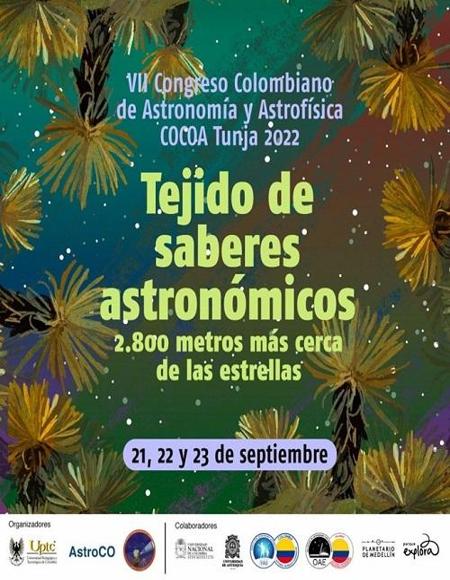Test to early dark energy models using the Hubble expansion rate

Abstract
In this work, we present two independent metrics to compute today’s value of the Hubble parameter Ho.Firstly, we implement the median statistics, a robust method unaffected by outliers and variations in the
data distribution. Under only a few assumptions and a large dataset of Ho, built from different observational
methods in more than 90 years, this non-parametric scheme provides an estimate of 68.0 ± 4.5 km/s/Mpc for
Ho. We submit the catalog to a second test: the least squares function χ2. We compare the predictions from
the ΛCDM model (and the Planck collaboration 2018 cosmology) with the early dark energy parametrization
presented in García et al. 2021. The best fit values with this method are 68.5 ± 0.1 and 66.1 ± 0.1 km/s/Mpc,
for the former and latter models, respectively. We highlight that these robust statistical methods such as
1 the median statistics, are a powerful tool to solve the current Hubble tension (as well as other possible
inconsistencies among astronomical datasets). Notably, this method does not rely on any cosmological
models; therefore, it provides a clean (unbiased) prediction of the Universe’s expansion rate today. Finally,
we find that our results are consistent with the forecast for the Hubble parameter from the early Universe
estimates, rather than the local measurements, with two statistical schemes based on completely different
assumptions (parametric vs. non-parametric metrics) and a catalog of 574 values for Ho recovered from the
literature
Keywords
Dark Energy, Cosmology, Hubble tension, Bayesian Inference. 2
References
- Hubble, E. & Humason, M. L. 1931, APJ, 74, 43. doi:10.1086/143323 DOI: https://doi.org/10.1086/143323
- Eddington, A. S. 1935, MNRAS, 95, 636. doi:10.1093/mnras/95.8.636 DOI: https://doi.org/10.1093/mnras/95.8.636
- Shah, P., Lemos, P., & Lahav, O. 2021, AAPR, 29, 9. doi:10.1007/s00159-021-00137-4 DOI: https://doi.org/10.1007/s00159-021-00137-4
- Efstathiou, G. 2021, MNRAS, 505, 3866. doi:10.1093/mnras/stab1588 DOI: https://doi.org/10.1093/mnras/stab1588
- Verde, L., Treu, T., & Riess, A. G. 2019, Nature Astronomy, 3, 891. doi:10.1038/s41550-019-0902-0 DOI: https://doi.org/10.1038/s41550-019-0902-0
- Knox, L. & Millea, M. 2020, PRD, 101, 043533. doi:10.1103/PhysRevD.101.043533 DOI: https://doi.org/10.1103/PhysRevD.101.043533
- Poulin, V., Smith, T. L., Karwal, T., et al. 2019, PRL, 122, 221301. doi:10.1103/PhysRevLett.122.221301 DOI: https://doi.org/10.1103/PhysRevLett.122.221301
- Niedermann, F. & Sloth, M. S. 2020, PRD, 102, 063527. doi:10.1103/PhysRevD.102.063527 DOI: https://doi.org/10.1103/PhysRevD.102.063527
- Hill, J. C., Calabrese, E., Aiola, S., et al. 2022, PRD, 105, 123536. doi:10.1103/PhysRevD.105.123536 DOI: https://doi.org/10.1103/PhysRevD.105.123536
- García, L. Á., Tejeiro, J. M. & Castañeda, L. 2011, DOI:10.3254/978-1-60750-974-5-309. Proceedings of the International School of Physics Enrico Fermi, Volume 178, http://ebooks.iospress.nl/publication/26898
- García, L. Á., Castañeda, L., & Tejeiro, J. M. 2021, New Astronomy, 84, 101503.doi:10.1016/j.newast.2020.101503 DOI: https://doi.org/10.1016/j.newast.2020.101503
- Planck Collaboration, Aghanim, N., Akrami, Y., et al. 2020, AAP, 641, A6. doi:10.1051/0004-6361/201833910 DOI: https://doi.org/10.1051/0004-6361/201833910
- Biswas, P., Roy, P., & Biswas, R. 2020, APSS, 365, 117. doi:10.1007/s10509-020-03829-y DOI: https://doi.org/10.1007/s10509-020-03829-y
- Riess, A. G., Casertano, S., Yuan, W., et al. 2019, APJ, 876, 85. doi:10.3847/1538-4357/ab1422 DOI: https://doi.org/10.3847/1538-4357/ab1422
- Riess, A. G., Yuan, W., Macri, L. M., et al. 2022, APJL,934, L7. doi:10.3847/2041-8213/ac5c5b DOI: https://doi.org/10.3847/2041-8213/ac5c5b
- Gott, J. R., Vogeley, M. S., Podariu, S., et al. 2001, APJ,549, 1. doi:10.1086/319055 DOI: https://doi.org/10.1086/319055
- Chen, G. & Ratra, B. 2011, PASP, 123, 1127. doi:10.1086/662131 DOI: https://doi.org/10.1086/662131
- Niedermann, F. & Sloth, M. S. 2019, arXiv:1910.10739
- Escamilla-Rivera, C. & Nájera, A. 2022, JCAP, 2022, 060. doi:10.1088/1475-7516/2022/03/060 DOI: https://doi.org/10.1088/1475-7516/2022/03/060
- García, L. A., Tescari, E., Ryan-Weber, E. V., et al. 2017, MNRAS, 470, 2494. doi:10.1093/mnras/stx137 DOI: https://doi.org/10.1093/mnras/stx1371
Downloads
Download data is not yet available.